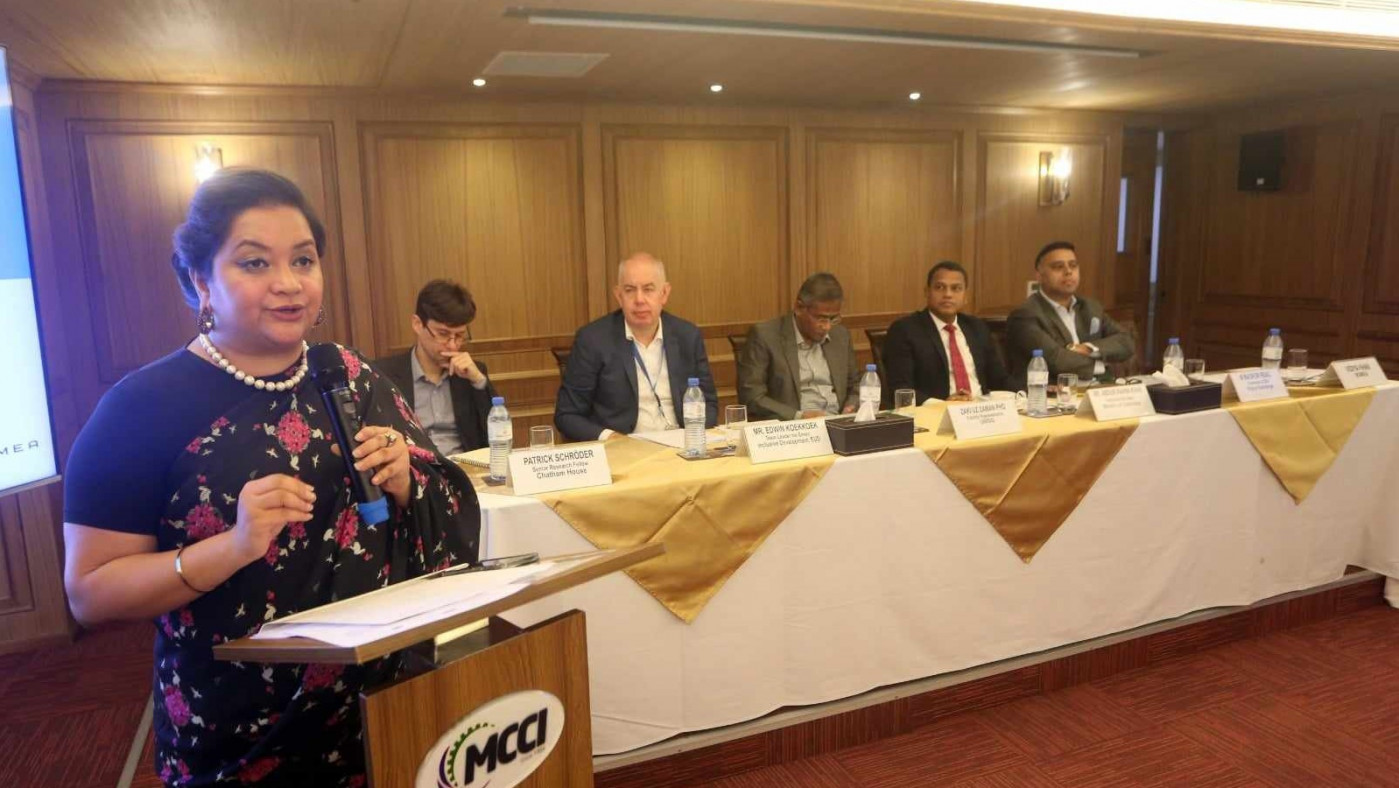Circular textile is a system where clothes are designed, produced, and used in a way that minimises waste and pollution, and maximises the value of resources

Large investments are needed to develop circular textile, a system where clothes are designed, produced, and used in a way that minimises waste and pollution, and maximises the value of resources, in line with international standards but financing is a major challenge for such initiative, industrialists and experts have said.
They, however, opined that private investors should come forward to bring success to the circular economy including circular textile. They emphasised developing industry-specific guidelines apart from national strategy and roadmap to make this initiative successful.
They made the remarks at a workshop titled “Advancing Circular Textile Policies in Bangladesh” organised by the Metropolitan Chamber of Commerce and Industry (MCCI) office at Police Plaza Concord in the capital’s Gulshan on Tuesday (5 December). UK-based think-tank organisation Chatham House, Policy Exchange Bangladesh, a Dhaka-based economic think-tank, and United Nations Industrial Development Organisation (UNIDO) jointly organised the event.
Asif Ibrahim, managing director of New Age Group, one of the renowned RMG exporters said, “Recycling textiles and garments requires huge investment. But now the demand for garments in the world market has decreased and the exporter’s margin has decreased drastically. As a result, financing is a big challenge in this situation.”
Shams Mahmud, managing director of Shasha Denims Limited, also mentioned that financing is a major challenge for the circular economy.
“The European Union provides funding for such projects through EU-based organisations. The major hurdles to getting the financing are that the repayment time is a maximum of one year and there is no grace period. As a result, the industrialists here are not able to avail this fund,” he said.
“If it (the fund) had come through Bangladesh Bank’s green financing fund, it would have been beneficial for the industrialists and this money could have been repaid in Bangladeshi currency,” Shams Mahmud, also a former DCCI president, added.
Circular fashion is an application of circular economy to the fashion industry, where the life cycles of fashion products are extended. It involves moving away from the traditional linear model of take-make-use-and-dispose towards a circular model of reduce-reuse-recycle-and-regenerate.
“Sustainable and durable products will be the future trend as changing consumer values drive sustainable product demand.”]By Hasnat Alam Senior manager and economist, Policy Exchange of Bangladesh
Hasnat Alam, senior manager and economist of Policy Exchange of Bangladesh, and Patrick Schröder, senior research fellow of Chatham House, presented two different papers.
In his presentation, Hasnat Alam said, “Sustainable and durable products will be the future trend as changing consumer values drive sustainable product demand.”
Brands prioritise fair procurement, sustainability and emission reduction, he said.
The presentation highlighted the importance of transitioning to a circular economy. In particular, challenges like the informality of waste collection, lack of quality of collected post-industrial waste, limited technological capacity and infrastructure and wastewater recycling.
On the other hand, some challenges arise in terms of policy which include cumbersome regulatory hurdles for waste material import and export, poor business climate, waste ownership and traceability, lack of green energy alternatives, taxation, regulatory hurdles and lack of worker guidelines, the presentation mentioned.
Hasnat Alam also showed how countries like Vietnam, Cambodia, Thailand and China are walking the path of success in the circular economy through conducive policies.
Dr M Masrur Reaz, chairman of Policy Exchange of Bangladesh; Abdur Rahim Khan, additional secretary of commerce ministry; Vidiya Amrit Khan, director of the Bangladesh Garment Manufacturers and Exporters Association; and Zaki Uz Zaman, country representative of UNIDO, also spoke, among others.
















